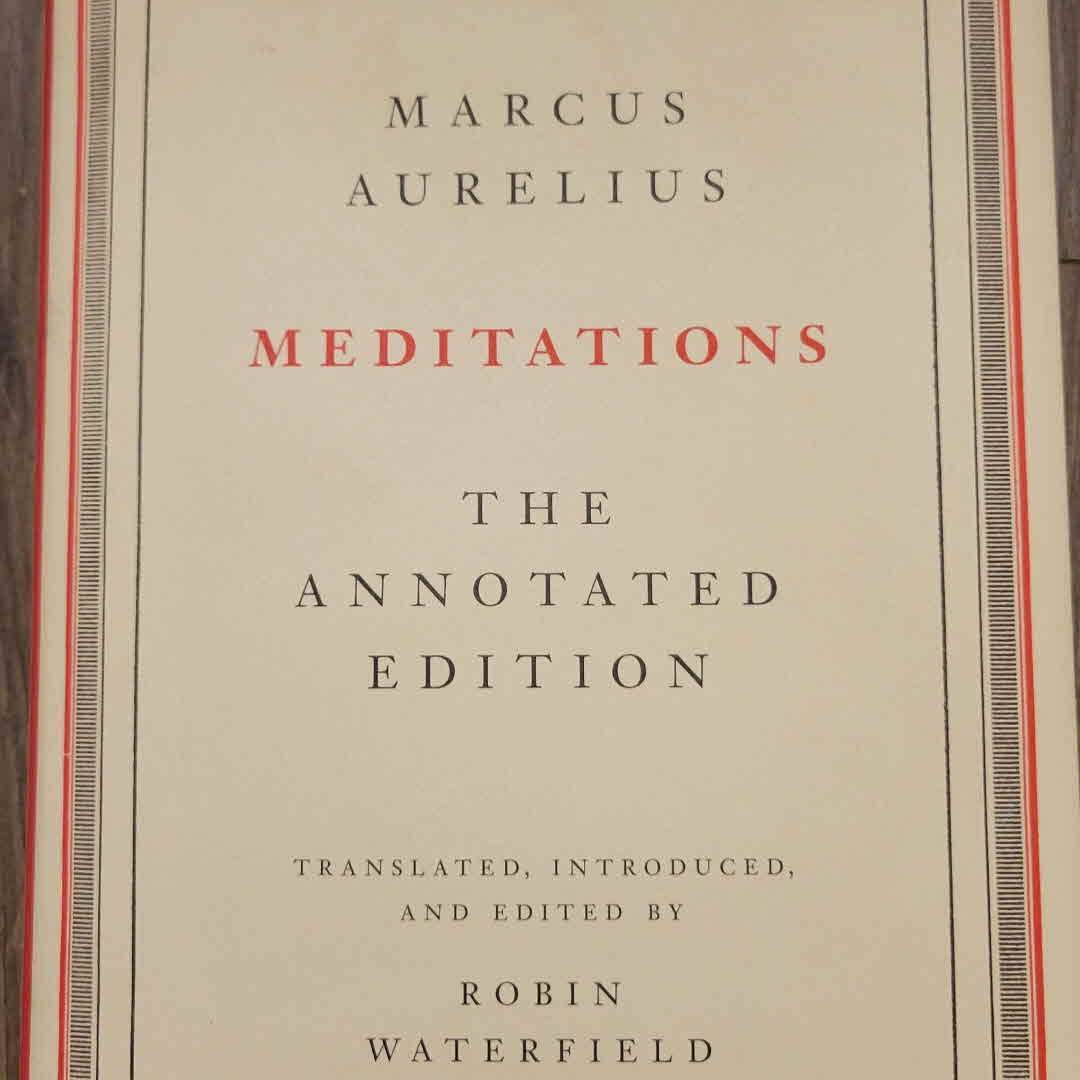Meditations Annotated | Marcus Aurelius
1 post
Meditations is a work of philosophical nonfiction written by Marcus Aurelius between 161 and 180 AD. A collection of Aurelius's private notes and musings on stoicism, it is unlikely that Aurelius ever intended it to be published. Later historians titled the collection Meditations because it best reflects the subject matter. A Roman emperor, Aurelius wrote the reflections during his reign. He is regarded as one of the most important Roman emperors, remembered for his sense of honor, his humility, and his seemingly unwavering passion for justice.Meditations consists of twelve books, each focusing on a different period in Aurelius's life. The books are not in chronological order, and they vary in length. It is likely that Aurelius wrote the content while he traveled on various military campaigns across Europe to preserve his Roman Empire. As such, the musings are short and succinct. Historians believe that Aurelius often referred to his own writing whenever he needed philosophical comfort.Aurelius begins by thanking everyone who has shaped his character. He gives thanks to his father for his modesty and to his grandfather for his morals. He thanks his mother for teaching him abstinence, piety, and humility. Thanks to her, he enjoys a simple life without obsessing over riches and titles. He says thanks to his great-grandfather for providing him with a good education.According to Aurelius, there is a need for cooperation and understanding. We spend too much time worrying about unimportant quarrels when we should be thanking the gods for giving us life in the first place. Aurelius reminds us that the gods only give us so much time, and it is up to us to use it wisely. Fighting is unproductive and goes against nature. Aurelius laments that we will never live long enough to truly understand ourselves. No amount of time on earth is enough to comprehend everything. We should not waste a single minute in our quest to better ourselves. We should live in the moment and be thankful for what we have. Every action has a purpose.Aurelius continues this theme, worrying that we spend too much time chasing happiness and fulfillment when it is all inside us. Riches, new houses, and luxury goods cannot satisfy us. We do not need sanctuaries or spiritual retreats, either. We must only look inside ourselves for peace and enlightenment. Aurelius examines the idea that it doesn't matter what anyone around us thinks. It only matters what we think of ourselves. What is most important is that we find satisfaction in ordinary life. There is nothing wrong with working hard, enjoying quiet family life, and possessing few luxuries. Aurelius connects humility with divine obedience.Aurelius looks closely at the nature of evil, wondering what it means to be "bad." Evil is short-lived, like all things. There is nothing unfamiliar about it, either. Just as history repeats itself, similar scenarios play out in homes behind closed doors all around us. We all know stories of, for example, violent spouses. Aurelius says we shouldn't worry about evil. If someone shows us cruelty, we should not let it ruin our day, our week, or longer. Life is too short to let someone else's toxic behavior destroy us. If we focus on ourselves, and if we choose to act with compassion and humility, then we are doing all we can.Focusing on justice, Aurelius despises unfairness of any kind. He believes that the gods designed us to help each other. If we treat another person unkindly, we are going against divine will. The only person we harm, then, is ourselves, because we are answerable to a higher power for our behavior.Considering our role in the universe, Aurelius believes in fate. He thinks that the gods plan out our lives and all we do is live out the script. We are all part of something much larger than ourselves, which is both comforting and humbling.

